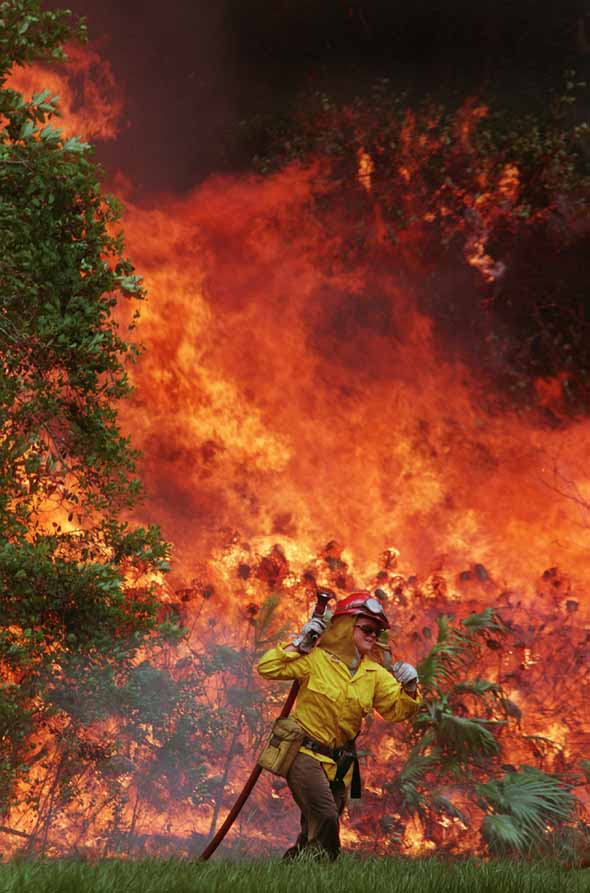Florida Fire Hazards
Florida is regularly subjected to wildfires. The fires often occur during the intense heat of summer, but can occur at any time during the year. During a drought, even a small spark – such as from a discarded cigarette – can quickly become a massive wildfire, and Florida’s frequent, intense lightning storms make conditions even more dangerous.
Fires, whether naturally occurring or started by people, can easily lead to road closures in Florida. This is due, in part, to the fact that fire is a very important part of Florida’s ecosystem. Many native plants will burn and regenerate quite easily, and in rural areas, huge walls of quickly-moving flames and smoke can make roads impassable. Even a distant fire can lead to road closures, as blowing smoke can quickly reduce visibility to just a few feet and make driving extremely dangerous.
On January 9, 2008, a thick mix of fog and smoke led to a catastrophic 70-vehicle pileup on Interstate 4, in Polk County.
Muck Fires
In much of Florida, the ground beneath the top layer of soil is made up of loose, organic material, which is known as “muck.” When a fire on the surface burns down into the muck, the organic material can ignite, producing a stubborn, smelly blaze. This blaze, a muck fire, can leave embers smoldering underground long after the surface fire has been extinguished. This produces a strange and very dangerous situation. The muck fire can spread underground, burning tree roots, and making trees unstable. The trees can then fall on firefighters or other people in the area.
Containing a muck fire can be very difficult for firefighters. Falling trees and destabilized ground can make it nearly impossible to bring firefighting equipment into a forested area where a muck fire is burning. Also, in order to extinguish a muck fire, the ground must be thoroughly soaked. This can require the earth to be turned over so that water can better reach burning areas of muck.
